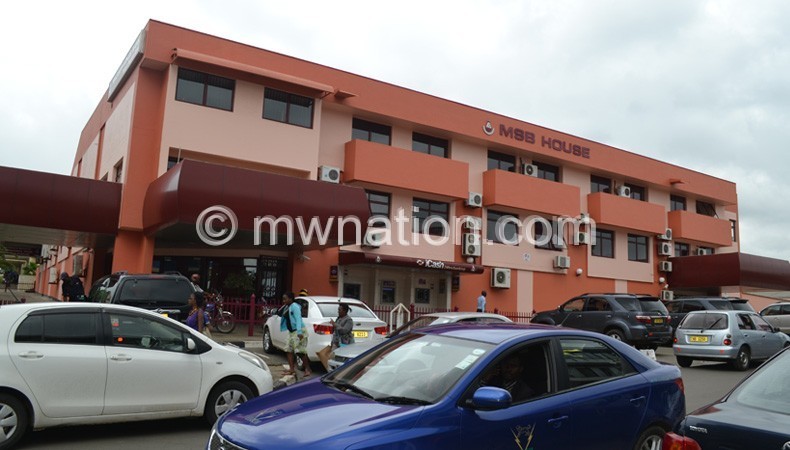Delays put MSB at risk of collapse
–Market analyst warns of possible bank run
–Public institutions join bandwagon of massive withdrawals
Delays in privatising the wholly State-owned Malawi Savings Bank (MSB) have eroded confidence in the bank among customers with many, including public institutions, withdrawing their deposits to other institutions.
The development has attracted warnings from a market analyst and the Economics Association of Malawi, who say the uncertainty surrounding the bank’s sale could attract a run on the institution.
Malawi Communications Regulatory Authority (Macra) is one of the State-owned institutions dumping MSB after requesting to redeem its K612 million fixed deposit from the bank.

In the statement, government admitted creating the situation that has put MSB in its current predicament, acknowledging that it used the bank to offer loans and make payments that ended up compromising the professionalism of the bank’s management.
Speaking on condition of anonymity, a Blantyre-based financial market analyst warned that continued delays to dispose of MSB could lead to a bank run—a situation where more customers withdraw deposits simultaneously due to fears or concerns of insolvency.
Warned the analyst: “If MSB is not disposed of quickly, we risk having a bank run where the bank will experience more withdrawals than deposits. Should that happen, the bank’s core business will be impaired as it will have no cash [assets] to lend out. That will be suicidal.
“The earlier it is sold, the better. But the longer this [process] takes, the worse it will be for the economy as confidence in the banking industry will be down, other businesses will be affected too and there will be negative returns on economic growth as even MRA [Malawi Revenue Authority] collections will be negatively affected.”
The analyst’s position is echoed by Ecama, which has urged Malawians to exercise caution and prudence in raising their concerns to government about the deal.
Ecama president Henry Kachaje, in a written response to The Nation questionnaire, said there is a high possibility that should the engagement of a strategic partner take much longer, Malawians might end up losing the very investment some are claiming to protect.
He said: “We need to draw lessons from history. The case of Air Malawi was similar to the MSB case. A strategic partner was identified, but the fights and delays that followed made the strategic partner shy away and in the end, the whole company collapsed. Let us not do the same with MSB.”
Kachaje said Malawians should appreciate that MSB has not performed well under government ownership; hence, it is only prudent that just as there are reforms taking place in the civil service, the bank should also operate effectively having satisfied all requirements as stipulated by the central bank.
Earlier this year, government, through the Public Private Partnership Commission (PPPC), invited bids from strategic investors to buy its stakes in MSB and Indebank Limited, in which Capital Hill has majority stake.
Through the transactions, government wanted to, among other things, ensure that MSB and Indebank met new Basel II regulatory requirements in terms of capitalisation.
National Bank of Malawi (NBM) has since been named the preferred bidder for Indebank while FDH Financial Holdings Limited—owners of FDH Bank—was the sole bidder of MSB.
However, the MSB deal is facing resistance from several stakeholders, including opposition parties, the Budget and Finance Committee of Parliament, civil society organisations (CSOs) and more recently some concerned MSB employees who obtained an injunction against the sale. The court order has since been lifted.
Two weeks ago, CSOs petitioned Parliament to stop the sale of MSB and on Saturday the groups asked President Peter Mutharika to intervene.
In the statement, the ministry is saying as a result of the negative publicity around the treatment of the toxic assets, MSB faced a real threat of a bank run during February–April 2015 and deposits exceeding K11 billion were withdrawn without replacement during the period.
Given the turn out of events, government thinks it is decisive to bring in investors as that seems the only way out.
Two weeks ago, revelations by The Nation that government had taken over MSB’s toxic loans worth K6.4 billion owed by politically linked companies and individuals attracted public anger as the move was seen as a bail-out package.





